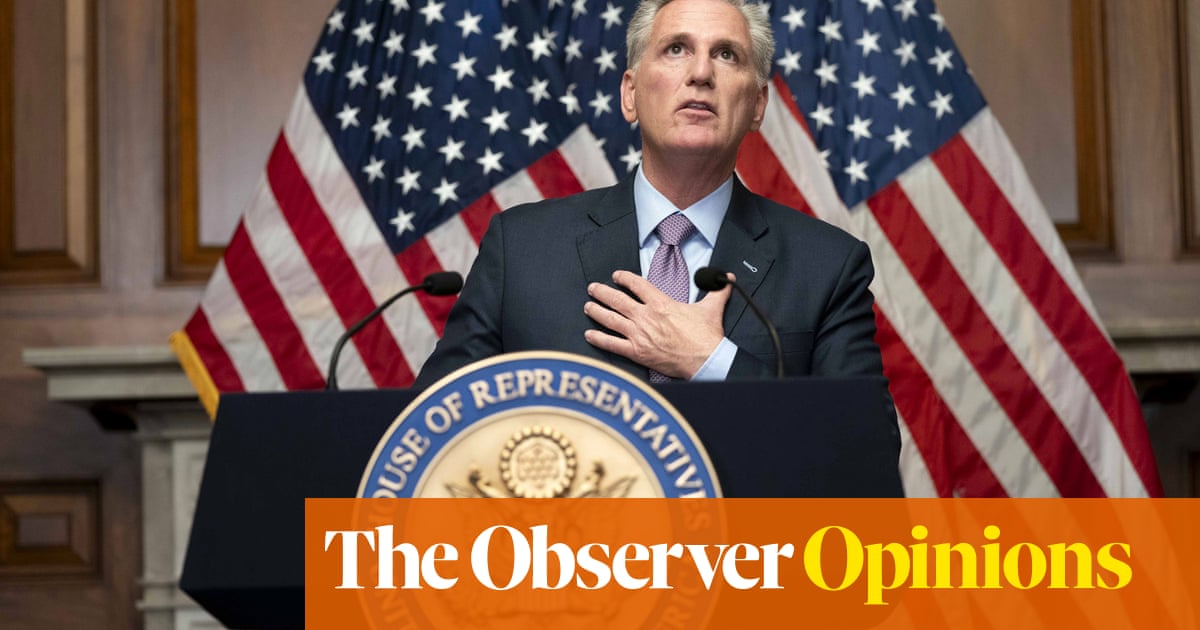
While the UK remains firmly fixed geographically in Europe, one of the defining features of its post-Brexit foreign policy has been the attempts to join far-flung trade groups such as the Comprehensive and Progressive Trans-Pacific Partnership, and possibly now the US-Mexico-Canada agreement.
In Washington last week British Prime Minister Boris Johnson played up UK expectations of joining the latter agreement, but part of his motivation was political sleight of hand — to conceal his disappointment that a trade deal with the US is unlikely during Joe Biden’s current term of office. Because of tension over the implementation of the Northern Ireland Protocol, a key tenet of the UK-EU Brexit agreement, a trade deal now seems unlikely until after a 2024 consent vote in Northern Ireland on the protocol, and the US presidential election that same year. In other words, it will need to await either a second Biden term or a new president.
Few remember now that Barack Obama said in 2016 that if the UK left the EU it would go to the “back of the queue” for a US trade deal. But that is what has happened, with Biden now prioritising other trade agreements, including one with the 27-member European bloc.
One of the key arguments of Brexiteers during the 2016 referendum campaign was that a US trade deal would be a major prize — even though it would do little to compensate for the long-term hit to GDP from new barriers to trade with the EU. The pathway for the UK joining the USMCA, which is in effect a North America Free Trade Agreement 2.0, could be even more complicated than securing a US trade deal, since it would require a green light from Mexico and Canada as well as the US.
Few remember now that Barack Obama said in 2016 that if the UK left the EU it would go to the “back of the queue” for a US trade deal.
Andrew Hammond
The UK government has struck agreements to roll over trade deals it previously enjoyed with Mexico and Canada as part of its membership of the EU. UK ministers have also announced their intention to begin talks on upgraded agreements with those two countries for the deals to be “better tailored to the UK economy,” but these initiatives remain at early stages.
Comparatively little is known outside North America about USMCA, and its predecessor NAFTA, which is one of the most comprehensive trade areas outside the EU. NAFTA and USMCA have served as political cornerstones of economic relations within the continent and more than $1 trillion in annual trade.
While they have brought much prosperity to Mexico, the story is different in the US, where politicians on both sides of the aisle have blamed it for contributing to a hollowing out of the US manufacturing industry, partly because of increased trade deficits. This is why Trump decided it was politically prudent for him to give the pact a branding refresh from NAFTA to USMCA.
While Trump claimed his renegotiation was a historic masterstroke, international trade continues to be controversial within each of the three countries, and there are also tensions between the nations too. Only last month, Mexico’s Economy Minister Tatiana Clouthier requested formal consultation over the interpretation and application of USMCA’s tougher content rules for cars, and Canada has since joined Mexico in this action.
This highlights that USMCA presents significant political challenges within North America, and the UK would do well to be aware of these tensions as it looks to enter the agreement. Part of the reason for this continued controversy is that Trump eroded much goodwill in Mexico and Canada with more than a year of acrimonious negotiations over USMCA that left a sour taste in both countries, which traditionally had ben enthusiastic about North American trade.
It is in this cauldron that the UK would make a formal bid to join USMCA. Ultimately, such a move will be driven by politics as much as economics in London given that joining the North American bloc will do comparatively little in the short term to make up for the hit to GDP from new barriers to trade with the EU as a result of Brexit.
Andrew Hammond is an Associate at LSE IDEAS at the London School of Economics
Disclaimer: Views expressed by writers in this section are their own and do not necessarily reflect Arab News" point-of-view












